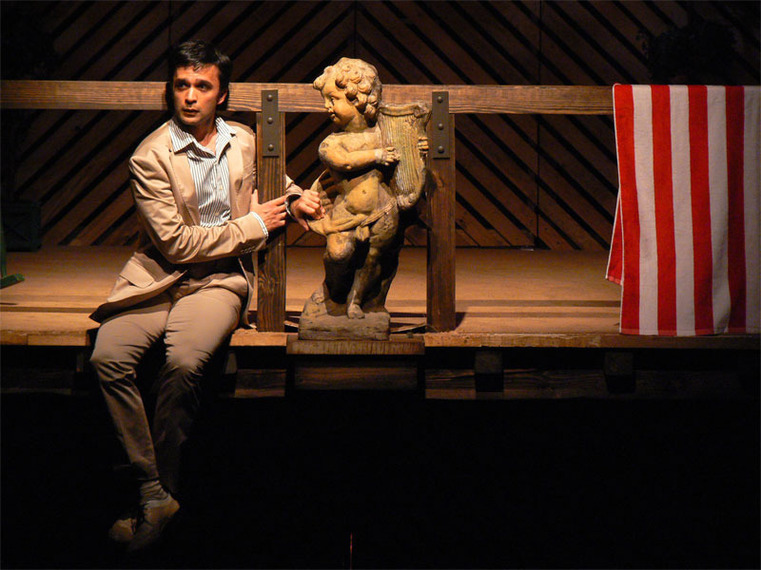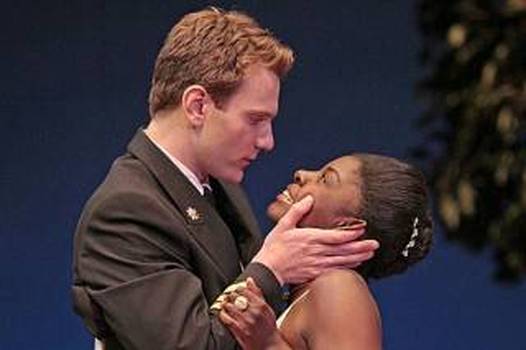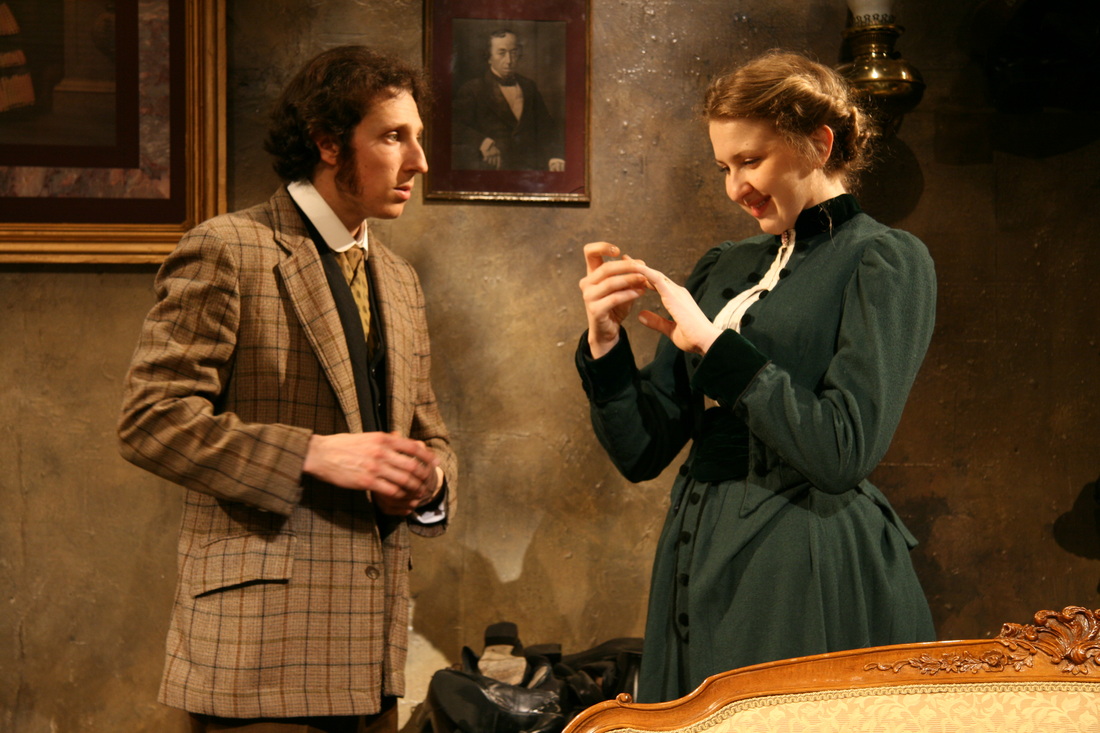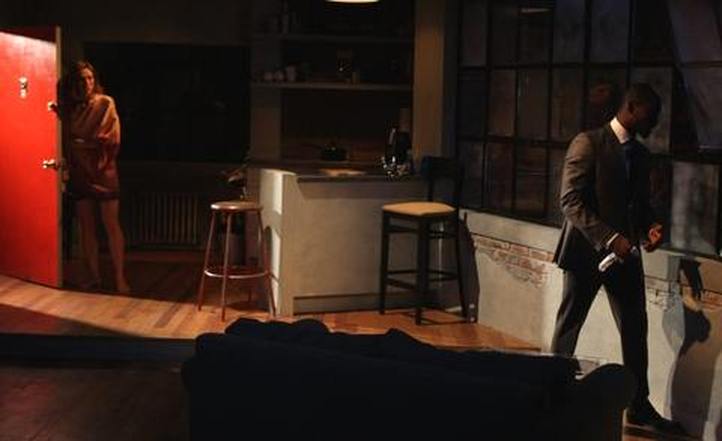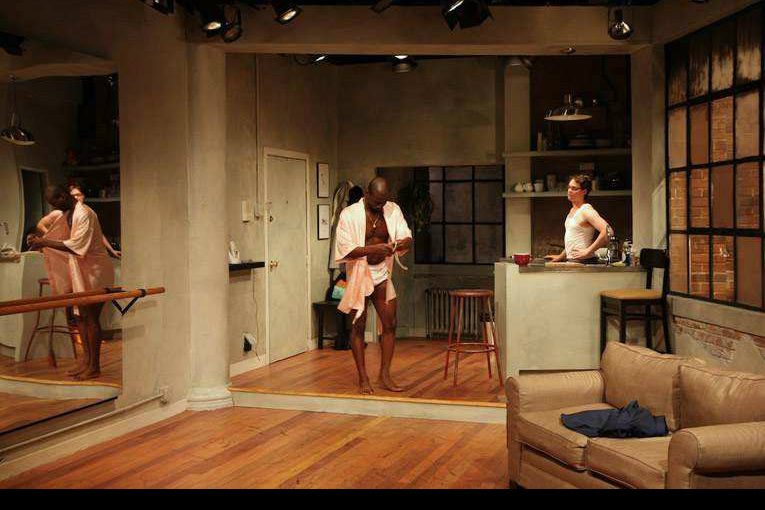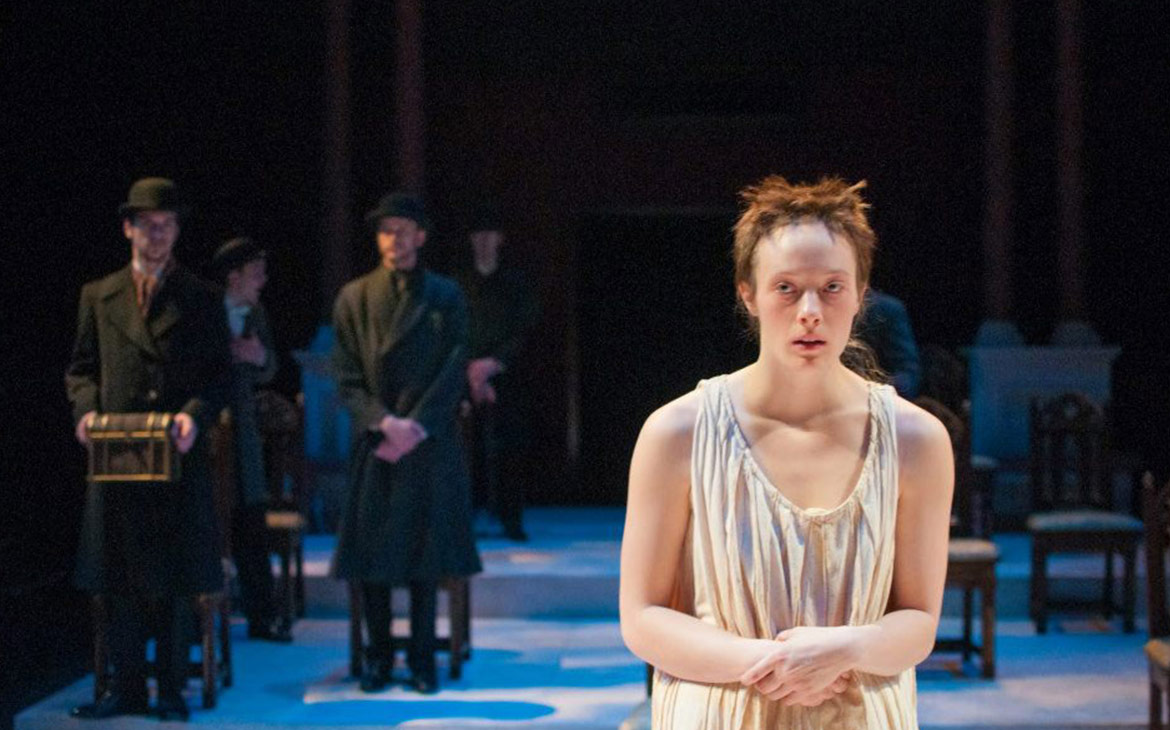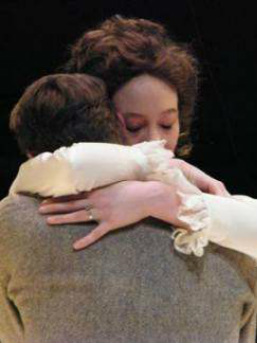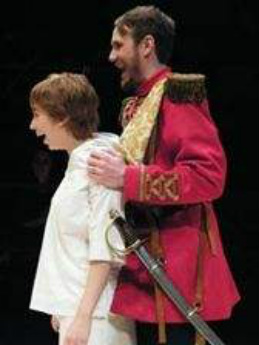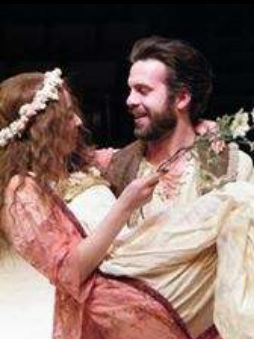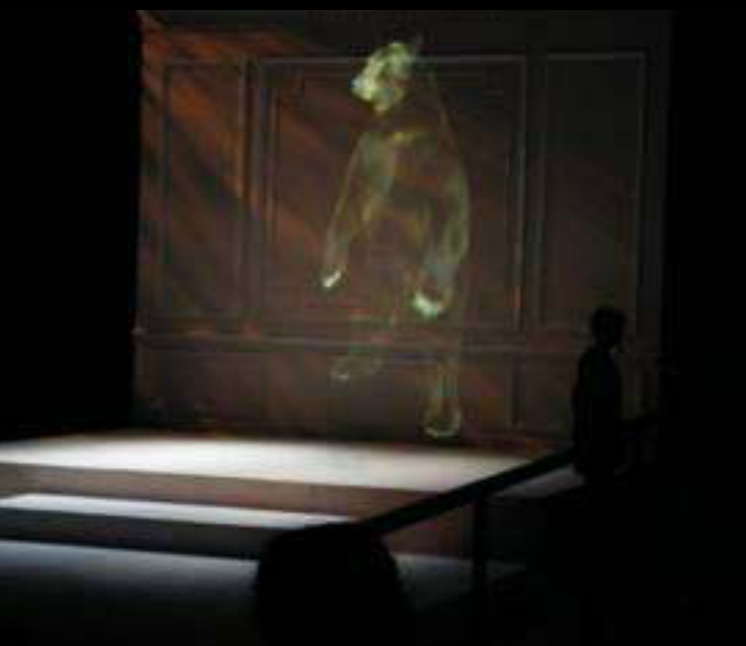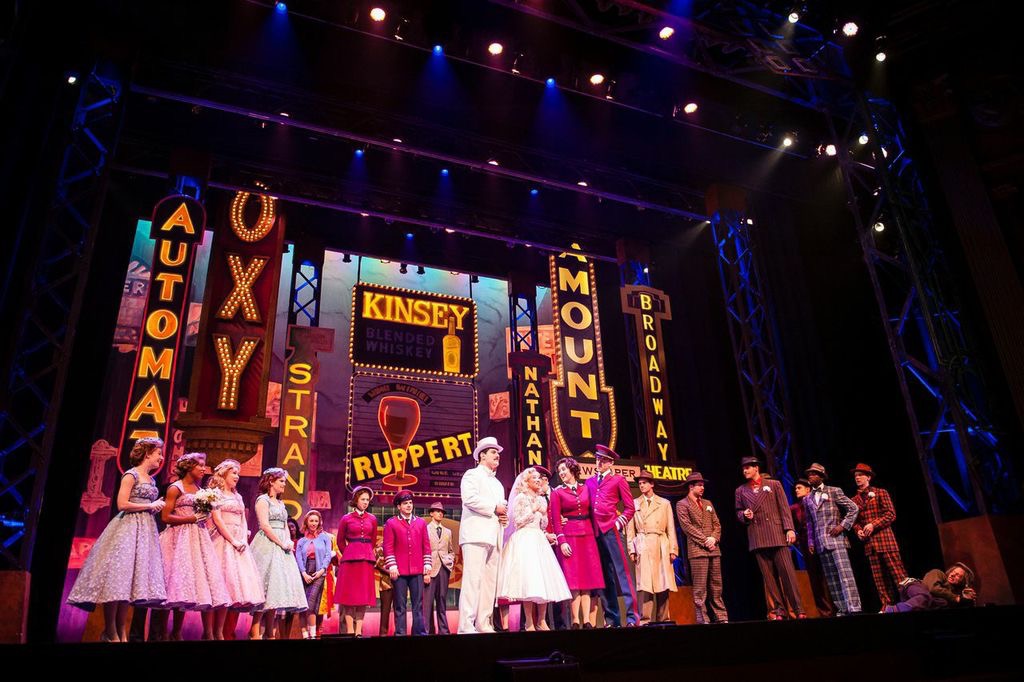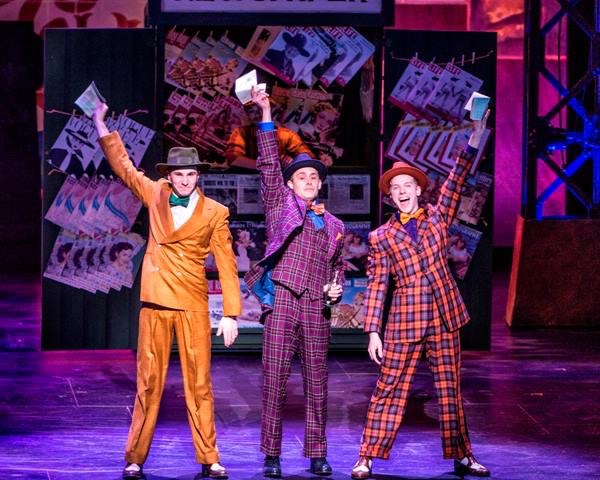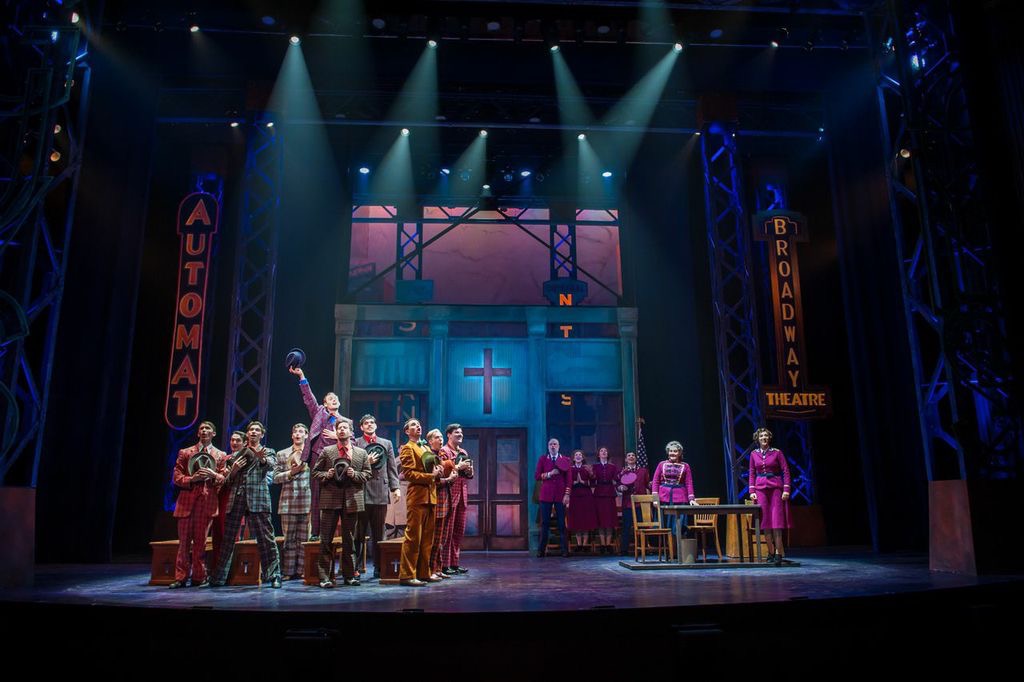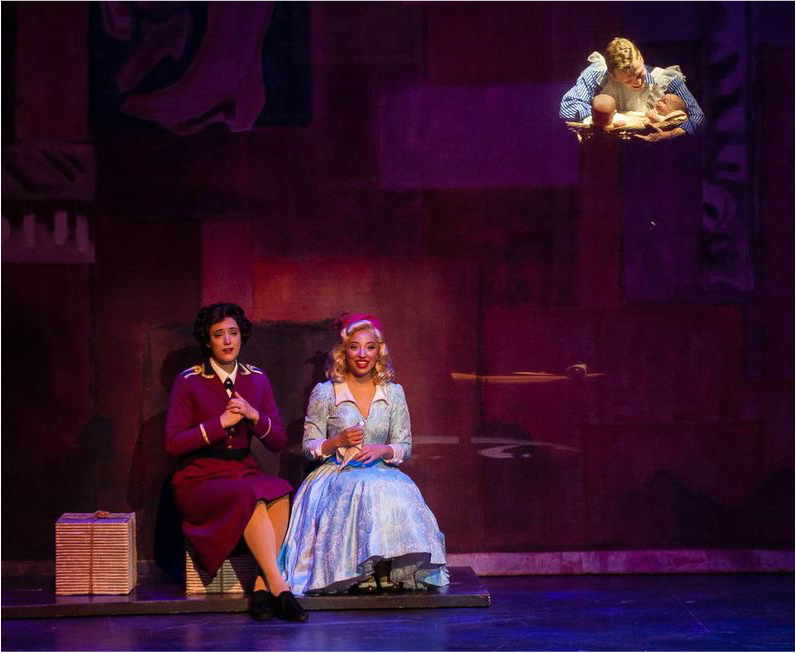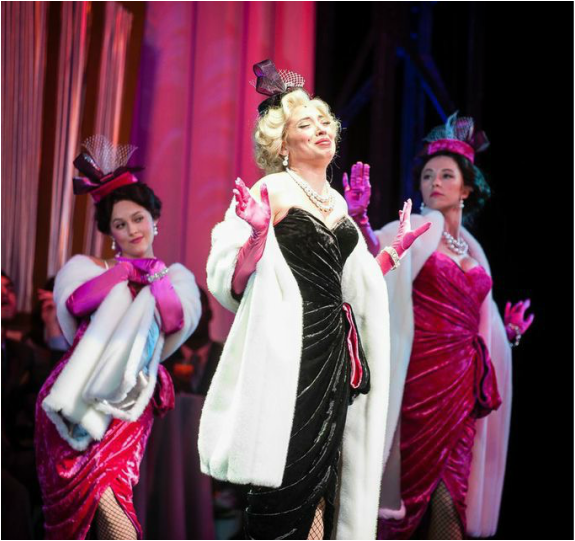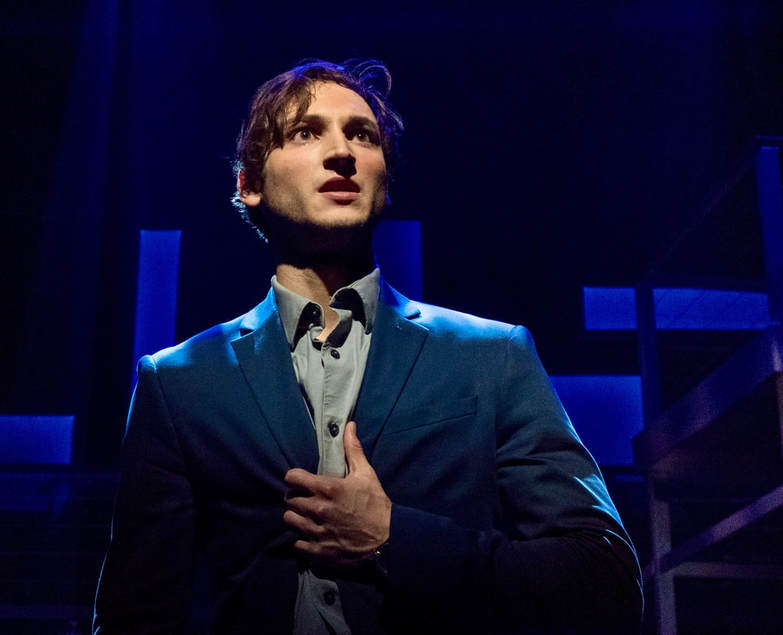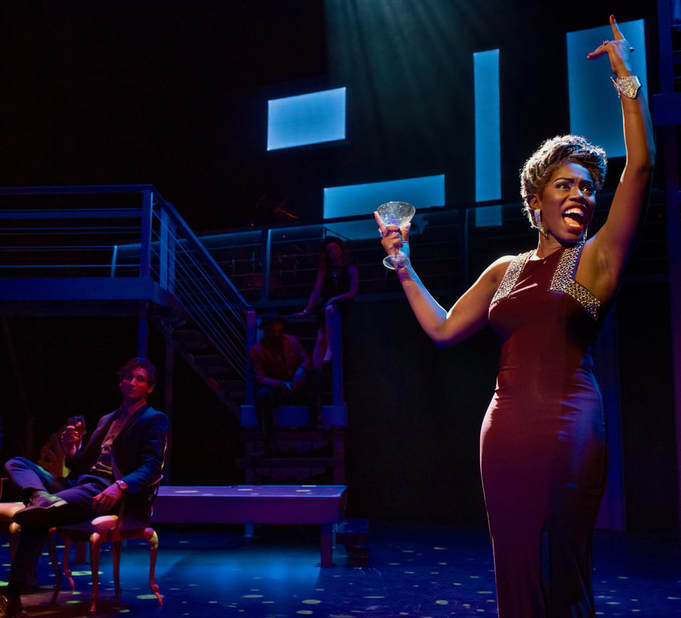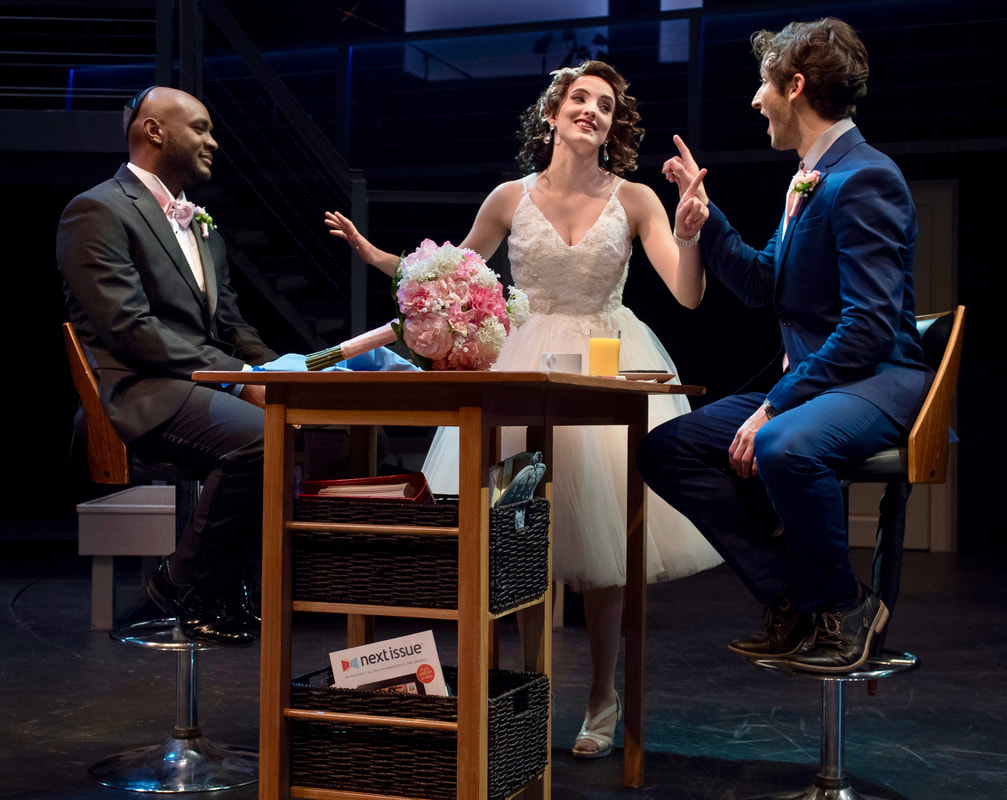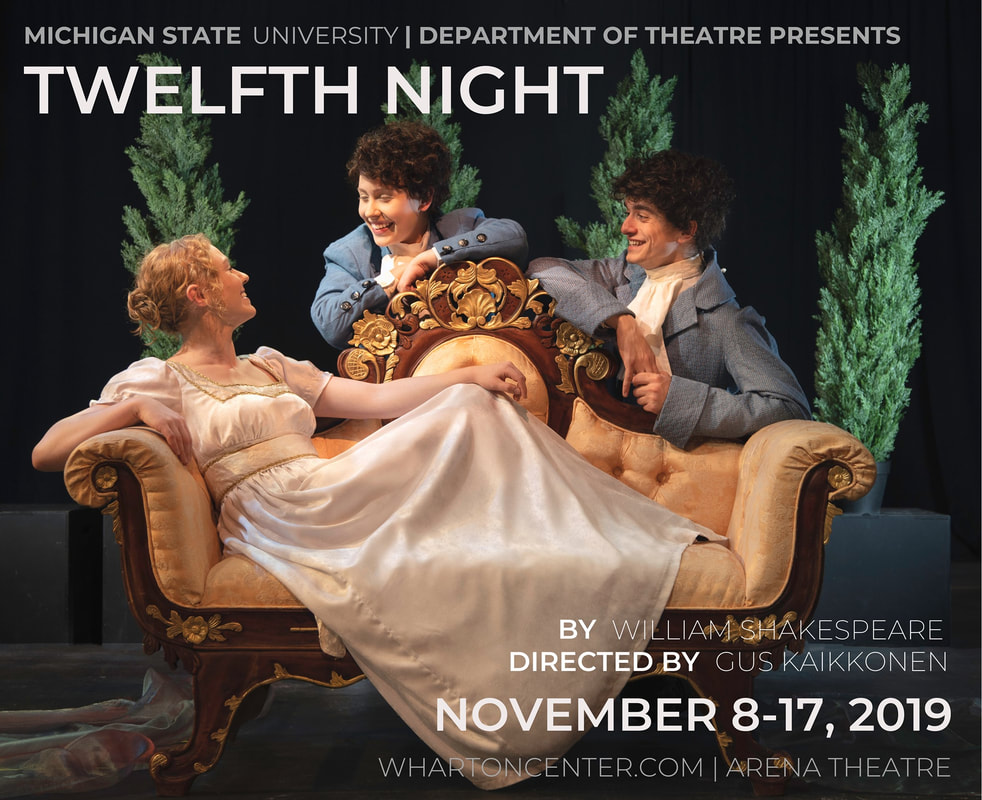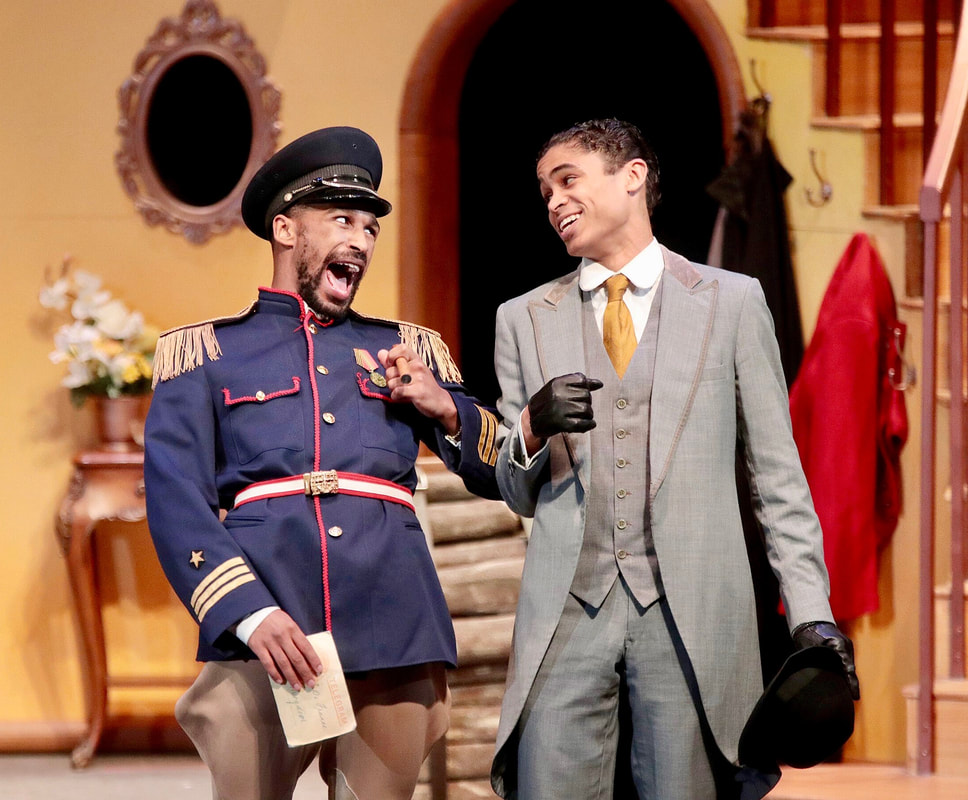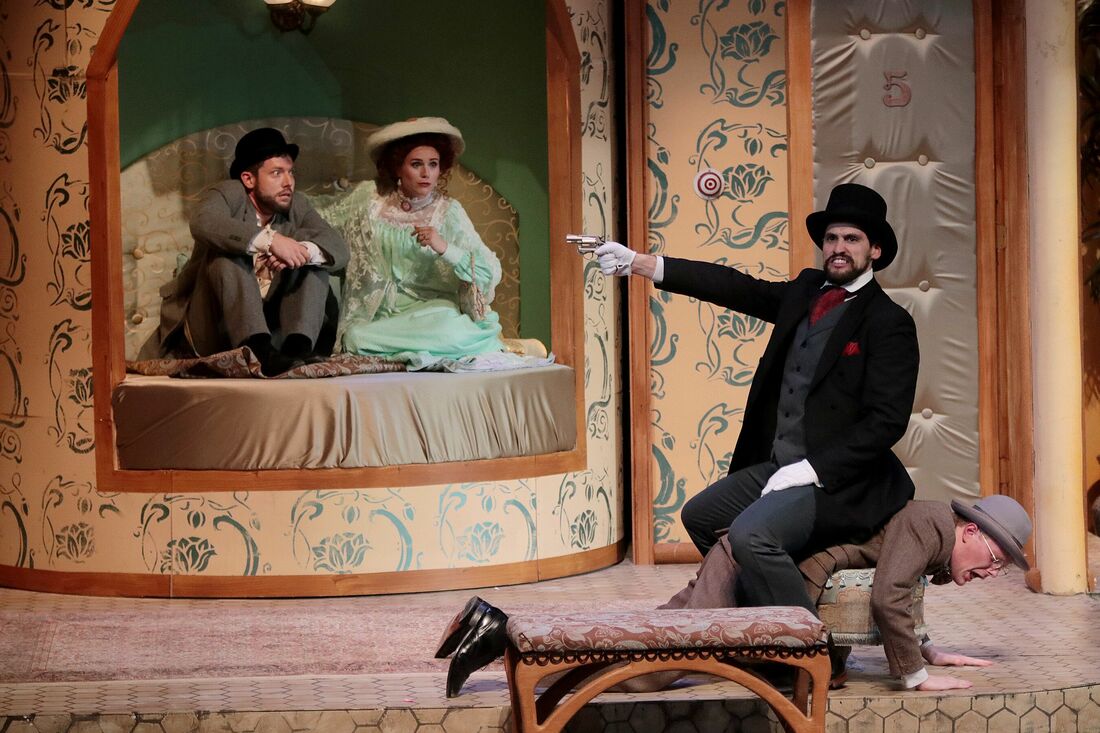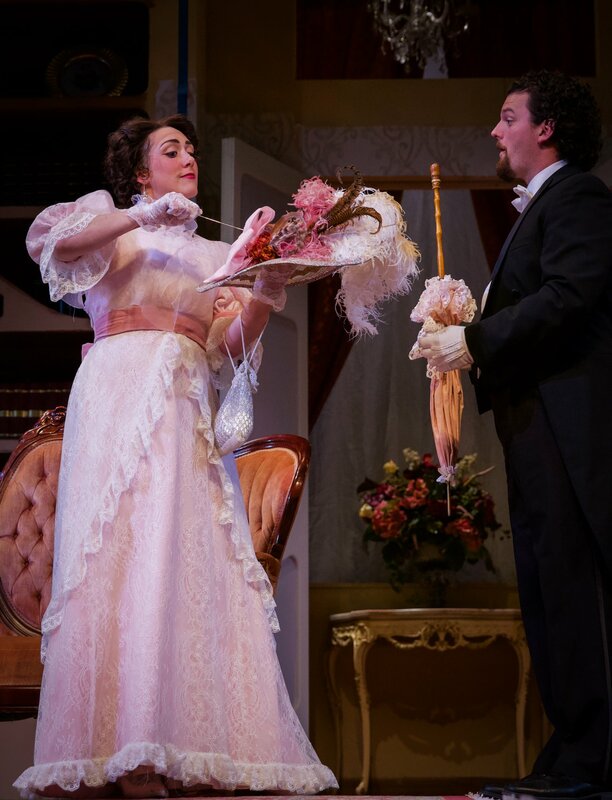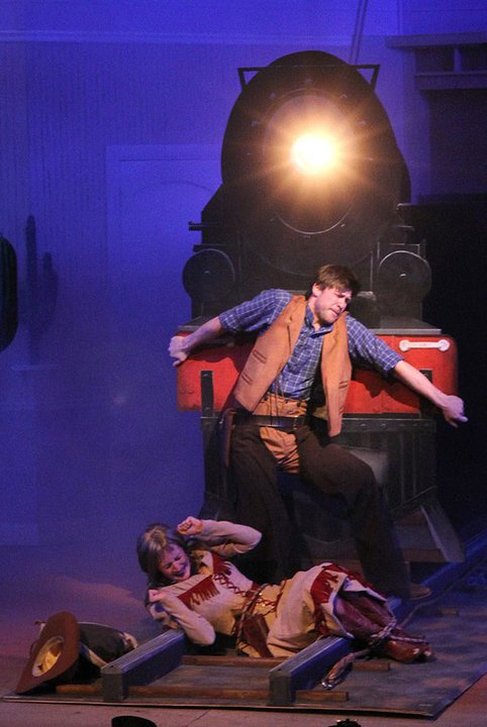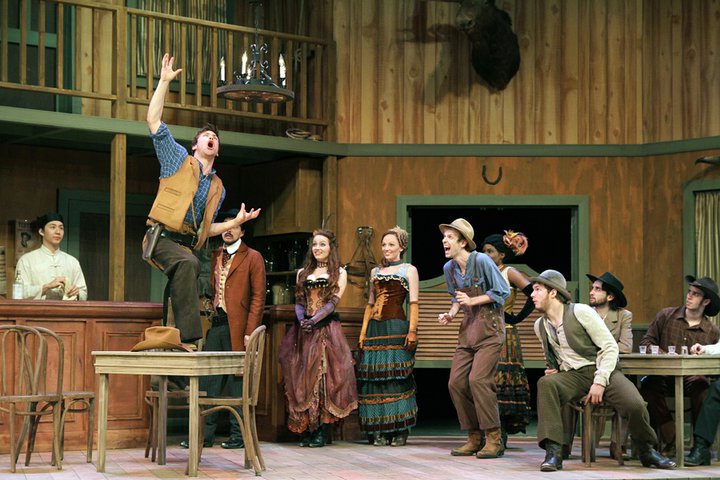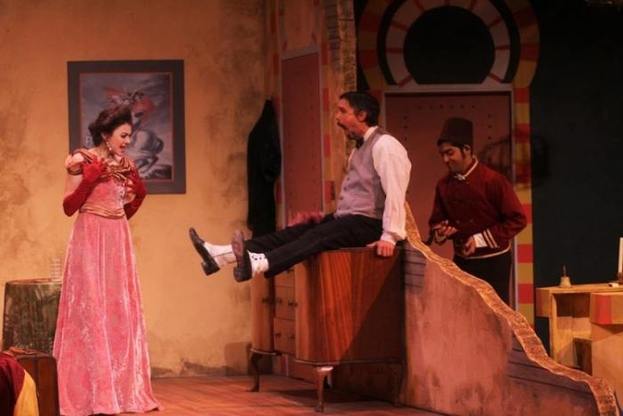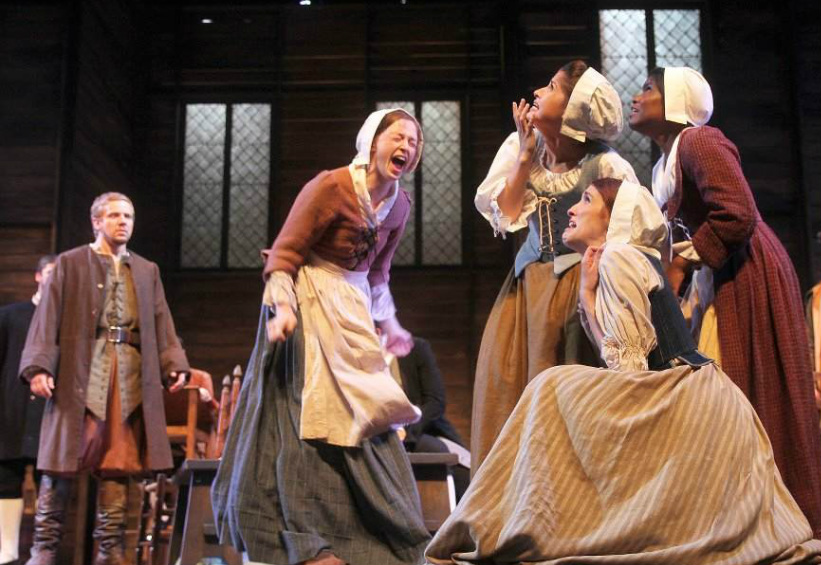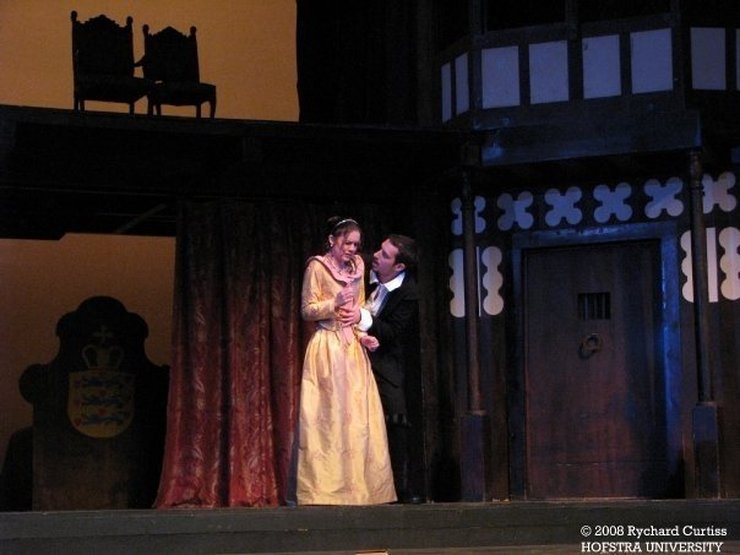Juilliard
PRODUCTIONS:
The Laundry Channel by Stephen Harper 2004
Golden Boy by Clifford Odets 2005
Uncle Vanya by Anton Chekhov 2006
The Cherry Orchard by Anton Chekhov 2007
The Crucible by Arthur Miller 2007
Love's Labour's Lost by William Shakespeare 2009
The Merchant of Venice by William Shakespeare 2010
Ivanov by Anton Chekhov 2011
Seagull by Anton Chekhov 2013
NYU Tisch
PRODUCTIONS:
Burn This by Lanford WIlson 2009
Hobson's Choice by Harold Brighouse 2008
North Carolina School of the Arts (UNCSA)
PRODUCTIONS:
The Winter's Tale 2014
Guys and Dolls 2015
Company 2017
The Winter's Tale, February/March 2014
Winston-Salem Journal Thursday, February 27, 2014
'The Winter's Tale' fantasy plausible
Lynn Felder
Shakespeare's 'The Winter's Tale' which opened Wednesday at UNC School of the Arts, uses fine acting, minimalist sets, luscious costumes and some visceral special effects to create a plausible fantasy universe. Inanimate objects come to life. Actors play multiple roles that are, in one particular case, poignant, and in others just good fun. Audrey Bodek designed the scenery, which is elegant and functional. Evan M. Higgins designed the lighting that contributes to the effects and the palpable atmosphere. The subtle--and not-so--sound design by Gabriel Clausen is mesmerizing, though you may not notice much of it. In short, guest director Gus Kaikkonen handles the plays problems of credulity tastefully and inventively.
The world of "The Winter's Tale," is an imaginary Europe, filled with Victorian and Edwardian costumes by Danielle Dickinson. They are gorgeous. It covers 16 years, a continent and a broad spectrum of human emotion. The Sicilian King Leontes, played with mature intensity by Miles Duffield, has entertained his friend Polixines, King of Bohemia, for nine months in court. When Polixines says that it's time to go home, Leontes sets his very pregnant wife, Hermione, to dissuade him. In a nuanced performance by Madeleine Meigs, Hermione's powers of persuasion succeed in not only getting Polixines to stay but also arousing an insane jealousy in her husband. Leontes' rage sets off a series of unfortunate and complicated events in the first act that are mostly resolved in the second, and Meigs seamlessly careens from coquettish to martyr to magnanimous. Clint Tate is very good as the baffled and bluff Polixines in his scenes with Meigs, Duffield and later with his son Florizel, played with a convincing naturalness by Benton H. Guinness.
Meagan Smith shows uncanny range in her dual roles. This kind of facility is a joy to behold. Andrew Manning is delightful as Clown. It's a pleasure to watch him go from a stiff courtier in the first act to a full-out physical comedian in the second. His work with David Zaldivar as the old shepherd is hilarious. Adelaide Lummis is ferocious and laser-like in the role of Paulina, Hermione's most faithful defender. She is the very soul of a woman warrior. Jacob Owen is a great crowd-pleaser as Autolycus, an itinerate musician and cutpurse. The show reels from heartbreak to delight and back again, but when done like this, it's quite wonderful.
[email protected]
'The Winter's Tale' fantasy plausible
Lynn Felder
Shakespeare's 'The Winter's Tale' which opened Wednesday at UNC School of the Arts, uses fine acting, minimalist sets, luscious costumes and some visceral special effects to create a plausible fantasy universe. Inanimate objects come to life. Actors play multiple roles that are, in one particular case, poignant, and in others just good fun. Audrey Bodek designed the scenery, which is elegant and functional. Evan M. Higgins designed the lighting that contributes to the effects and the palpable atmosphere. The subtle--and not-so--sound design by Gabriel Clausen is mesmerizing, though you may not notice much of it. In short, guest director Gus Kaikkonen handles the plays problems of credulity tastefully and inventively.
The world of "The Winter's Tale," is an imaginary Europe, filled with Victorian and Edwardian costumes by Danielle Dickinson. They are gorgeous. It covers 16 years, a continent and a broad spectrum of human emotion. The Sicilian King Leontes, played with mature intensity by Miles Duffield, has entertained his friend Polixines, King of Bohemia, for nine months in court. When Polixines says that it's time to go home, Leontes sets his very pregnant wife, Hermione, to dissuade him. In a nuanced performance by Madeleine Meigs, Hermione's powers of persuasion succeed in not only getting Polixines to stay but also arousing an insane jealousy in her husband. Leontes' rage sets off a series of unfortunate and complicated events in the first act that are mostly resolved in the second, and Meigs seamlessly careens from coquettish to martyr to magnanimous. Clint Tate is very good as the baffled and bluff Polixines in his scenes with Meigs, Duffield and later with his son Florizel, played with a convincing naturalness by Benton H. Guinness.
Meagan Smith shows uncanny range in her dual roles. This kind of facility is a joy to behold. Andrew Manning is delightful as Clown. It's a pleasure to watch him go from a stiff courtier in the first act to a full-out physical comedian in the second. His work with David Zaldivar as the old shepherd is hilarious. Adelaide Lummis is ferocious and laser-like in the role of Paulina, Hermione's most faithful defender. She is the very soul of a woman warrior. Jacob Owen is a great crowd-pleaser as Autolycus, an itinerate musician and cutpurse. The show reels from heartbreak to delight and back again, but when done like this, it's quite wonderful.
[email protected]
GUYS AND DOLLS at UNCSA Spring 2015
- ‘Guys and Dolls’ flawlessly paced, performed
- Lynn Felder/Winston-Salem Journal
UNC School of the Arts’ all-school production of “Guys and Dolls,” which opened Thursday at the Stevens Center, is an exuberant celebration of love and luck. The music, lights, color and motion propel a tale of 1940s Broadway that is flawlessly paced and performed from overture to finale...This “Guys and Dolls” stands the test of time and manages to be both corny and ironic at the same time. The gamblers are wise guys. The chorus girls are adorably diverse, and the lovers are irresistible — to each other and to the audience....
All are exquisitely staged by Gus Kaikkonen and choreographed by Edie Cowan, guest artists...The energy NEVER flags. The orchestra, about 30 strong, is mostly students with a few pros thrown in for good measure and directed by Dale Rieling, another guest artist who keeps the pace explosive...
Based on this production, which is about a million times better than the movie with Frank Sinatra and Marlon Brando, it is easy to see why “Guys and Dolls” won the Tony for Best Play in 1951. The costumes by Colleen Hall, scenic design by Garret Daub and lighting by Al Crawford all contribute to a cohesive production that manages to be realistic, surreal and cartoon-like but all in a wonderful way. There was a lot of build-up to this show, part of UNCSA’s 50th anniversary celebration, but I am happy to report that it surpasses the hype and completely dazzles on its own merits.
COMPANY at UNCSA, Fall 2017
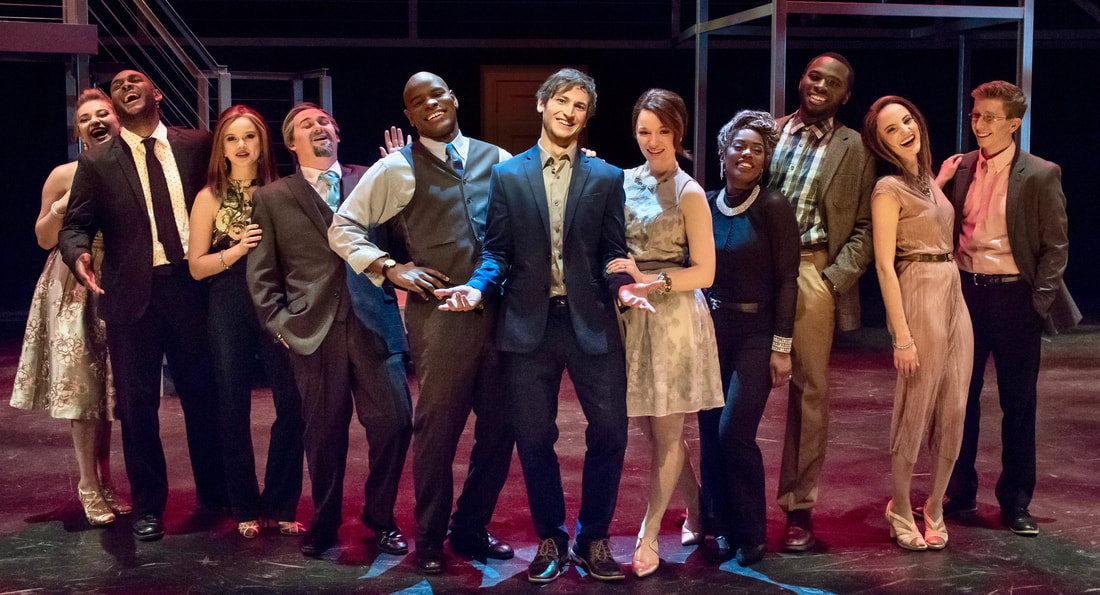 Cast of COMPANY
Cast of COMPANY
Michigan State University Fall 2019
Lansing CityPULSE News
MSU players have a ravishing run of ‘Twelfth Night’
Posted Wednesday, November 13, 2019
Tom Helma
Rarely, is a Shakespearean play done well. Michigan State University’s current production of “Twelfth Night” is quite the exception, a cut above any Shakespeare I’ve seen in a long time. Start to finish, bottom to top, the MSU Department of Theatre sizzles. It crackles and pops.
Usually, walking into a Shakespeare play without first knowing the storyline is analogous to walking the Appalachian Trail without a map. Better yet, it’s something like a Star Trek episode where you land on a distant planet, discover the people look a little like you, sound a little like you, but what?
This story centers on Viola, a noblewoman in her twenties who has just survived a shipwreck, realizes her twin brother may have drowned and that she is now alone in the world.
She quickly adapts to her circumstance and pleads with the ship’s captain to arrange for her to be a pretend eunuch in the court of Duke Orsino, hoping she might woo him away from the indifferent Lady Olivia.
The plot focuses on these characters. Viola being the ersatz middleman wooing Olivia on behalf of Orsino, simultaneously having the hots for Orsino herself.
Isa Rodriguez is Viola, garbed as Caesario, manly with a long afro buzz-cut for much of the play. Rodriguez is steady-as-she-goes, clever and competent, calm and deliberate with clear no-nonsense intention and grace. Ryan Adolph as Orsino and Jamie Lien as Olivia do a good job displaying the off-putting pomposity and arrogance of their entitled characters.
This production, however, belongs to supporting actors who seize the moment and steal the show at every opportunity. Chief among them are Kevin Craig as Sir Toby Belch and Claire Wilcher as Feste, the jester in Olivia’s Court. Wilcher is a singing jester whose resounding lyrical voice fills the Arena stage and environs. When she is merely talking, Feste’s wit outshines the half-witticisms that are sprinkled throughout the play by others.
Craig, as the drunken “Uncle” Toby, slithers and slides across the stage drawing multiple laughs along the way, and his contribution to the complicated sword play in Act II is simply dazzling.
Right behind this dynamic duo are Chaseton Caine as Malvolio, who’s crush on Olivia puts him at odds with her suitor Sir Andrew played by Nate Davis. Each of these actors bring creative innovation and high energy to their roles.
Sharon Combs is Maria, lady-in-waiting to Olivia and Eli Drake is Fabian, Olivia’s gardener. Overall, a merry bunch of pranksters, indeed.
Credit guest director Gus Kaikkonen for much of the incredibly complex stage direction, and a special kudos to sound design and lightning (pun intended) direction Nick Zola for the spectacular thunderstorm and shipwreck at the beginning of the play.
How does this all turn out? Aye — there’s the rub. One must see it to believe it.
“Twelfth Night”
Wednesday, Nov. 13 to Sunday, Nov. 17
MSU players have a ravishing run of ‘Twelfth Night’
Posted Wednesday, November 13, 2019
Tom Helma
Rarely, is a Shakespearean play done well. Michigan State University’s current production of “Twelfth Night” is quite the exception, a cut above any Shakespeare I’ve seen in a long time. Start to finish, bottom to top, the MSU Department of Theatre sizzles. It crackles and pops.
Usually, walking into a Shakespeare play without first knowing the storyline is analogous to walking the Appalachian Trail without a map. Better yet, it’s something like a Star Trek episode where you land on a distant planet, discover the people look a little like you, sound a little like you, but what?
This story centers on Viola, a noblewoman in her twenties who has just survived a shipwreck, realizes her twin brother may have drowned and that she is now alone in the world.
She quickly adapts to her circumstance and pleads with the ship’s captain to arrange for her to be a pretend eunuch in the court of Duke Orsino, hoping she might woo him away from the indifferent Lady Olivia.
The plot focuses on these characters. Viola being the ersatz middleman wooing Olivia on behalf of Orsino, simultaneously having the hots for Orsino herself.
Isa Rodriguez is Viola, garbed as Caesario, manly with a long afro buzz-cut for much of the play. Rodriguez is steady-as-she-goes, clever and competent, calm and deliberate with clear no-nonsense intention and grace. Ryan Adolph as Orsino and Jamie Lien as Olivia do a good job displaying the off-putting pomposity and arrogance of their entitled characters.
This production, however, belongs to supporting actors who seize the moment and steal the show at every opportunity. Chief among them are Kevin Craig as Sir Toby Belch and Claire Wilcher as Feste, the jester in Olivia’s Court. Wilcher is a singing jester whose resounding lyrical voice fills the Arena stage and environs. When she is merely talking, Feste’s wit outshines the half-witticisms that are sprinkled throughout the play by others.
Craig, as the drunken “Uncle” Toby, slithers and slides across the stage drawing multiple laughs along the way, and his contribution to the complicated sword play in Act II is simply dazzling.
Right behind this dynamic duo are Chaseton Caine as Malvolio, who’s crush on Olivia puts him at odds with her suitor Sir Andrew played by Nate Davis. Each of these actors bring creative innovation and high energy to their roles.
Sharon Combs is Maria, lady-in-waiting to Olivia and Eli Drake is Fabian, Olivia’s gardener. Overall, a merry bunch of pranksters, indeed.
Credit guest director Gus Kaikkonen for much of the incredibly complex stage direction, and a special kudos to sound design and lightning (pun intended) direction Nick Zola for the spectacular thunderstorm and shipwreck at the beginning of the play.
How does this all turn out? Aye — there’s the rub. One must see it to believe it.
“Twelfth Night”
Wednesday, Nov. 13 to Sunday, Nov. 17
